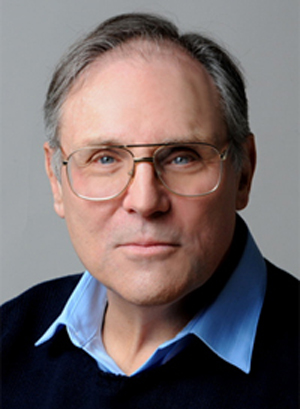 |
Alex T. Bell
The Dow Professor of Sustainable Chemistry
Chemical and Biomolecular Engineering
University of California-Berkeley
Alexis T. Bell received his ScD degree in chemical engineering from MIT in 1967 and then joined the Department of Chemical and Biomolecular Engineering at the University of California at Berkeley, where he currently holds the title of Dow Professor of Sustainable Chemistry. He has served as Chairman of the department from 1981 till 1991 and again from 2005 to 2006 and as Dean of the College of Chemistry from 1994 to 1999. Professor Bell is also a Faculty Senior Scientist in the E. O. Lawrence Berkeley National Laboratory. He serves as Editor for Catalysis Reviews, and has served as Chair of the Board of Editor for Chemical Engineering Science (2005-2011). He has also served on numerous committees of the American Chemical Society, the American Institute of Chemical Engineers, the Council for Chemical Research, and the National Research Council.
Professor Bell's research focuses on the use of experimental and theoretical methods to elucidate reaction mechanisms and the development of structure-property relationships for metal, metal oxide, and zeolite catalysts. He has published approximately 595 papers, which have been cited more than 20,000 times. His research contributions have been recognized by a number of awards and honors, including the AIChE Professional Progress Award (1983), the R. H. Wilhelm Award for New Contribution in Chemical Reaction Engineering (1992), and the William H. Walker Award for Excellence in Contributions to the Chemical Engineering Literature (2005); the ACS Award in Creative Research in Homogeneous or Heterogeneous Catalysis (2002) and the George A. Olah Award in Hydrocarbon or Petroleum Chemistry (2013); and the Paul Emmett Award in Fundamental Catalysis (1985) and the Michel Boudart Award for the Advancement of Catalysis (2007) of the North American Catalysis Society. He has been elected to the National Academy of Engineering (1987), the American Academy of Arts and Sciences (1988), and the National Academy of Science (2010). He is also an honorary member of the Siberian Branch of the Russian Academy of Sciences (2001) and was identified as "One Hundred Engineers of the Modern Era" by AIChE (2008).
Monday, February 25, 2013, 4:30 p.m.
Refreshments served at 4:15 p.m.
1227 Engineering Hall
"The Role of Catalysis in the Conversion of Renewable Energy Resources to Fuels"
The discovery and development of effective strategies for utilizing renewable energy resources (wind, solar energy, biomass) has become a major theme in the 21st century. The growing recognition that combustion of non-renewable energy resources (natural gas, petroleum, and coal) adversely affects the global climate has motivated these efforts. One of the challenges is to provide high energy density transportation fuels – gasoline and diesel. While these fuels have been produced from petroleum, it is possible to produce them from biomass. This approach, however, requires significant transformation of biomass to produce species resembling gasoline and diesel. Catalysts are required to facilitate these chemical processes as is a source of hydrogen for the removal of oxygen. This talk will discuss possible catalytic processes for converting the carbohydrate fraction of biomass to diesel and for the production of hydrogen by solar energy driven photoelectrochemical splitting of water.
Tuesday, February 26, 2013, 4:00 p.m.
1610 Engineering Hall
Reception at 3:30 p.m. Engineering Hall Lobby
"In Pursuit of a Molecular-Scale Understanding of Catalyzed Reactions – Lessons Learned from Experiments and Theory"
A continuing goal of research in the field of catalysis is the development of a fundamental, atomic-scale understanding of the influence of catalyst composition and structure on catalyst activity and selectivity. The effects of catalyst composition and structure on catalyst performance has largely been revealed through experimental studies, but recent advances in theoretical methods and computer speed have opened the door for understanding and exploring the influence of catalyst composition and structure through the application of theory. This talk will illustrate how experimental and theoretical methods can be used to develop an understanding of the factors controlling catalyst performance. It will be shown that in the case of active centers contained in a zeolite, catalyst activity and selectivity depend on both the electronic properties and confinement of the active site. In the case of reactions occurring on the surface of metal nanoparticles, it will be shown that particle size and composition strongly influence the activity, selectivity, and stability of the catalyst, whereas for metal oxides non-bonding interactions can play a critical role.
